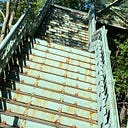Member-only story

In the 1930s and 1940s, one of the most successful writers in Hollywood was Dashiell Hammett. A former detective for the Pinkerton agency, Hammett created such popular literary characters as Sam Spade and Nick Carter. Humphrey Bogart portrayed Spade in the Maltese Falcon and other movies and William Powell portrayed Carter in the Thin Man movies with Myrna Loy portraying his wife Nora.
Carrying such a strong resume of written works may lead one to believe Hammett died a rich, successful writer. He did not, he died penniless and virtually homeless, destroyed by a mob mentality in the nation and in New York and Hollywood. His story is a good word to the wise for today’s cancel and book-banning culture.
A veteran of two wars
Hammett was a United States Army veteran twice. During World War I, he drove an ambulance and contracted tuberculosis. He suffered from lung ailments for the rest of his life. Despite being 49, he re-enlisted in the army towards the end of World War II, where he served in intelligence service in Alaska.
His politics leaned to the left and he affiliated with the America Communist Party in the 1940s. This did not prevent him from entering the Army the second time, however.
As late as the first days of 1951, his work and the characters he created remained popular on the radio and in movies.
Imprisoned for not giving names
Hammett became a board member of the Civil Rights Congress (CRC) during the Red Scare that began in the Truman administration and continued through the 1950's. The CRC provided financial assistance to those in legal throes because of the persecution of those suspected of communist sympathies. It provided bail money to four alleged communists convicted of conspiracy according to an AP article from July of 1951.
This drew the ire of the United States District Court of the Southern District of New York in Manhattan.
Hammett refused to give the names to prosecutors of those who contributed to the fund citing his fifth amendment rights. This did him no avail and he received a six-month jail sentence in July of 1951, by federal Judge Sylvester J Ryan in New York for his silence…
